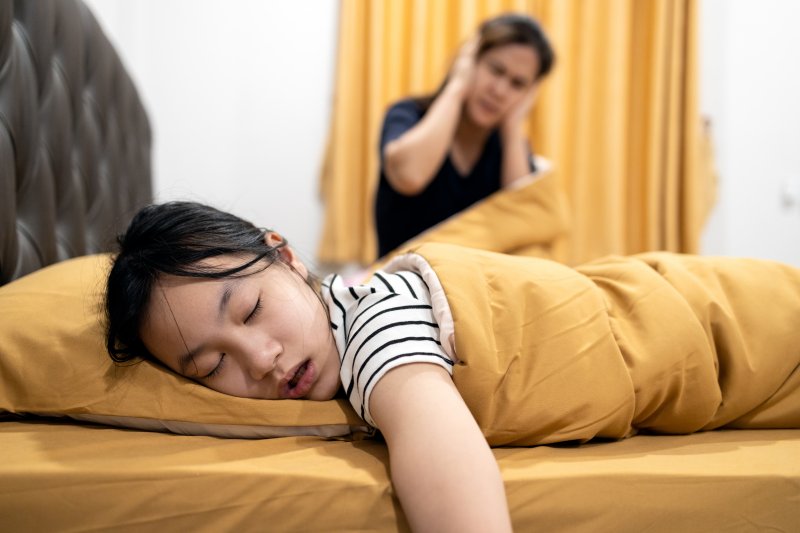
How often do you wake up with a wet pillow? If you find that you need to wipe your mouth when you get up in the morning, it’s likely because you have been drooling. While it might seem like a harmless condition, the truth is that it could be linked to something more serious – sleep apnea. Find out the link between the two and what you can do to get help for your interrupted sleep.
Why Do You Drool?
Although it’s not considered a dangerous problem by itself, drooling occurs when you have too much saliva production and you cannot keep it in your mouth.
It’s actually quite normal but can be an indicator of other, more serious issues such as obstructive sleep apnea, bruxism, or gastroesophageal reflux disease (GERD).
Is There a Connection Between Drooling and Sleep Apnea?
While there is no grand scientific breakthrough that researchers have found, the ultimate connector between drooling and sleep apnea is mouth breathing.
When diagnosed with obstructive sleep apnea (OSA), you experience multiple or even hundreds of interruptions throughout the night because of an obstruction in your airway. Many individuals with OSA are considered mouth breathers. As a result, the saliva inside your mouth can escape easily, resulting in a wet pillow.
What Are the Other Symptoms Associated with Sleep Apnea?
When seeking a diagnosis of sleep apnea, other possible symptoms may help in identifying whether this is the cause of your chronic fatigue:
- Frequent morning headaches
- Regular wakings throughout the night
- Choking or coughing for air
- Snoring
- Daytime fatigue
- Inability to focus
- Moodiness
How Can Treating Sleep Apnea Also Help with Drooling?
Treating sleep apnea can help to alleviate these symptoms and improve your overall quality of life. What you may be pleased to learn is that by undergoing treatment with a skilled professional for your OSA, you might also begin to enjoy a dryer pillow when you wake up.
Oral appliances can often be some of the most beneficial methods of treatment when it comes to addressing your sleep apnea. By slightly shifting your jaw forward, your airway will remain open, preventing an obstruction. It can also help so that your mouth remains closed while you sleep, keeping saliva from escaping throughout the night.
Drooling is nothing to be afraid of, but if you want to keep your pillow dry, consider seeking professional help from a trusted expert who can treat your sleep apnea.
About the Author
Do you suffer from sleep apnea? Dr. Shelley Shults is a board-certified registered nurse, general dentist, family nurse practitioner, and dental sleep medicine practitioner who wants to help. Leading a team of professionals at Powell Dental Sleep Solutions, she uses advanced technology and treatments to help patients get the rest they need while embracing life to its fullest. To learn more, contact us at (614) 681-8593.
